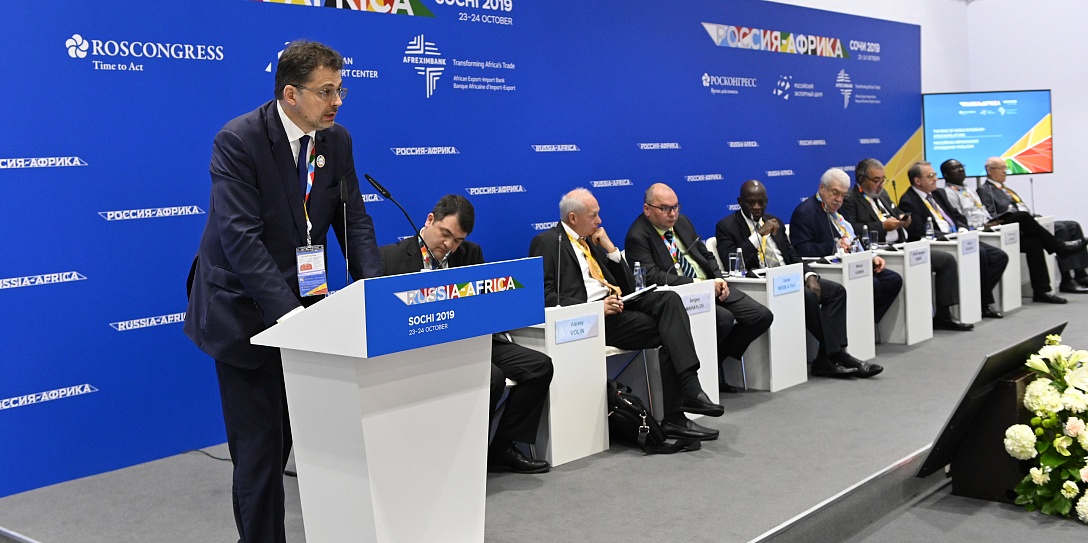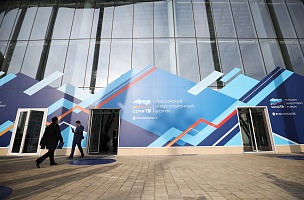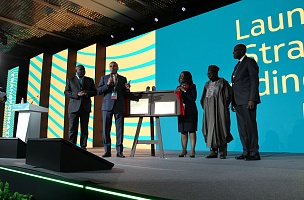KEY CONCLUSIONS
Information cooperation between Russia and the African countries is very promising
«Information cooperation is far more efficient and is developing much faster than the economic cooperation. Still, it is not enough. <...> Information cooperation is very promising, and we have whole sets of these programmes,» — Alexei Volin, Deputy Minister of Digital Development, Communications and Mass Media of the Russian Federation.
«The importance of mass media in modern life and in Russian-African relations is hard to overstate,» — Mikhail Gusman, Chairman, Russian National Committee of UNESCO’s International Programme for the Development of Communication; Vice-President, News Agency World Council (NACO).
Russian mass media are open to work with their African colleagues
«In addition to information exchange, RT is ready to offer African partners news, analytics, and documentaries. <...> Both RT and TASS are always ready to welcome African journalists willing to attend professional training programmes,» — Alexei Volin, Deputy Minister of Digital Development, Communications and Mass Media of the Russian Federation.
«TV-Novosti, an autonomous non-profit organization aims to work with African information agencies in disseminating RT content in English, French, and Arabic. RT and Sputnik want to take African journalists in for training programmes,» — Mikhail Bogdanov, Deputy Minister of Foreign Affairs of the Russian Federation; Special Presidential Representative for the Middle East and Africa.
«We support establishing direct contacts between the leading media outlets of Africa and Russia to develop professional dialogue, professional training, veritable information exchange, as well as sharing experiences in facing new threats and challenges,» — Artem Kozhin, Deputy Director, Department of Information and Press, Ministry of Foreign Affairs of the Russian Federation
PROBLEMS
Western media dominating in Africa
«Often times, unique news offerings created by the Russian media simply do not make to the users and viewers in many regions, including Africa. Evidently, this vacuum gets filled with one-sided information from other players in the media market. This information can be biased, or outright hostile towards Russia and residents of other countries,» — Mikhail Bogdanov, Deputy Minister of Foreign Affairs of the Russian Federation; Special Presidential Representative for the Middle East and Africa.
«Africa is largely unaware of Russia, since African media mainly consumes the Western sources and then replicates them. And all the fake news, the rusophobia and anti-Russian propaganda, spread by the Western media, are repeated in the African media,» — Alexey Vasiliev, Honorary President, Institute for African Studies of the Russian Academy of Sciences; Chef Editor, Asia and Africa Today Journal.
«Freedom of speech situation around the world is far from satisfactory. We encounter that all the time. Some Western countries break their international obligations and keep pressuring Russian media and their partners,» — Artem Kozhin, Deputy Director, Department of Information and Press, Ministry of Foreign Affairs of the Russian Federation.
«African continent is discussed quite a bit in the media. We have to analyze and comment on things all the time. Often times we get faulty evaluation from other sources. It turns out, that information can be false, marginalized, because the players are not equal and it affects the situation,» — Khalil Hashimi Idrissi, Managing Director, Maghreb Arab Press (MAP).
Insufficient information about Russia in Africa
«Delivering the news from Russia is still difficult. Information about Russia is still insufficient. TASS needs to keep that in mind. They need to sign agreements with agencies, or magazines, newspapers, radio and TV stations so that there is more news about Russia,» — Xavier Messe A Tiati, Director General, Cameroonian News Agency.
«We see a massive void in the information space when we talk about Russian-African relations. <...> Russia does a lot with the African countries, yet it does not get sufficient coverage,» — Albert Kofi Owusu, General Manager, Ghana News Agency.
SOLUTIONS
Expanding Russian media international office network
«Affecting the one-dimensional coverage inclination of the information field can be achieved by developing the wider international correspondents’ network for Russia, including offices in the African countries,» — Mikhail Bogdanov, Deputy Minister of Foreign Affairs of the Russian Federation; Special Presidential Representative for the Middle East and Africa.
«TASS today is dedicated to developing our relationship with the African colleagues. We are going to provide the residents of the continent with a chance to receive an interpretation of both global and African events, that will differ from that of the majority of Western media. TASS plans to significantly expand the number of offices in the tropical Africa. <...> This, we hope, is going to improve the mutual understanding between the peoples of Russia and of the African countries, and improve the relations across a variety of fields,» — Sergey Mikhaylov, General Director, Russian News Agency TASS
Strengthening the cooperation between Russian and African media
«Dear representatives of the African media, I call upon you to take part in the Global Media Agreement. It provides unique opportunities to inform the general public about the practical and tangible measures in achieving sustainable development goals. <...> It is only together we are going to change the world and achieve prosperity, security and justice,» — Vladimir Kuznetsov, Director, United Nations Information Centre in Moscow
«We understand we need to create a new cooperation model that will inspire us and bring us closer together. It will be a new cultural formation that will inspire our interaction, develop our societies, and stimulate growth,» — Khalil Hashimi Idrissi — Managing Director, Maghreb Arab Press (MAP).
For more information, visit the Roscongress Information and Analytical System at roscongress.org






